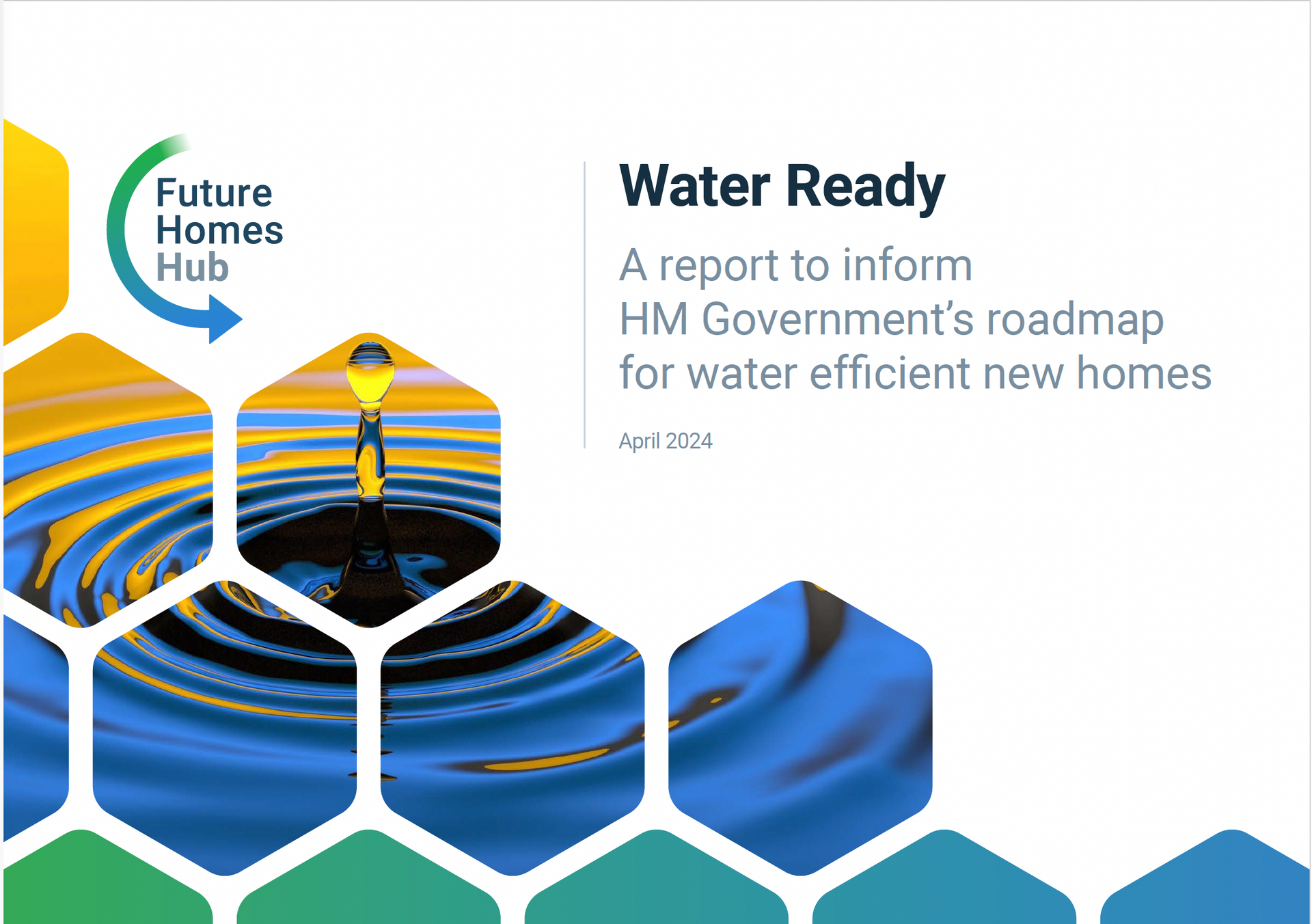Future Homes Hub Water Efficiency Report
Jean Spencer and John Slaughter • April 17, 2024

Jean Spencer
Independent Chair of the National Framework for Water Resources
Chair of the Independent Programme Board of the Enabling Water Smart Communities project

John Slaughter
Director of Industry Affairs at Home Builders Federation
Strategic Advisor at Future Homes Hub
Water is essential for life, but in a country like ours – famed across the world for having a rainy climate – its supply and availability are often taken for granted.
That should certainly not be the case now and for the future.
The latest estimate for England from the Environment Agency is that if we do nothing, “by 2050, we are looking at a shortfall of nearly 5 billion litres of water per day between the sustainable water supplies available and the expected demand”. That is a sobering statistic – such a supply gap would represent more than a third of our current 14 billion litres per day water use.
Historically, the greatest pressure on supply has been in the South East of the country, reflecting both the density of population and the comparatively low average rainfall. The Environment Agency’s latest assessment shows, however, that by 2050 all regions of the country would face a water supply deficit if we do not take action to manage and reduce per capita demand, tackle leakage and develop new sources of supply – in part to reduce the current rate of abstraction which is placing unwelcome pressure on the natural environment.
We also face a serious cumulative under supply of housing of course, and the need to build more homes to meet the requirements of our growing population is an important factor in considering what we have to do to meet our looming water supply challenge.
It is against this background that, acting on a request from Defra to assist it in developing a roadmap for water efficiency improvements in new homes, the Future Homes Hub brought together home builders, water companies, manufacturers, trade, consumer and professional bodies to look at what contribution new development could make to increasing water efficiency in the years ahead.
This work informed the high-level roadmap for water efficiency that was included in the Government’s Environmental Improvement Plan and the Plan for Water, both published in 2023, but there is also a need to explore in more detail what can be achieved in new development and to set out the enabling steps that need to be taken for potential gains in water efficiency to be realised.
The Future Homes Hub’s report “Water Ready: A report to inform HM Government's roadmap for water efficient new homes” which has just been launched pulls together this more detailed analysis and suggests the steps that could be taken under Part G of the Building Regulations to increase water efficiency requirements for new homes over the next 10 years.
At its heart, the report proposes that the Government should move quickly to set out a timeline for changes in Building Regulations in 2025. 2030 and 2035 which would cumulatively deliver a significant improvement in the water efficiency of new homes compared to today. The report also proposes a structure for higher levels of water efficiency in areas of greater water supply stress. And it is clear in its message that minimum regulatory requirements should be set on a fittings-based approach to provide greater confidence that the water savings sought will be achieved in practice.
Providing a clear timeline and direction of travel on water efficiency will be vital for both developers and the supply chain to plan and gear up for achieving higher standards at scale, but the report also underlines the importance of bringing consumers with us on the journey if change is to be successful and sustained. Solutions need to be both technically robust and consumer friendly and the policy framework should embed these twin objectives.
Finally, the work brought together in the report summarises both the potential for innovation and the current obstacles to its realisation. The report sets out many practical and detailed recommendations on steps that need to be taken to optimise the scope for successful change, including the need for new and improved technical standards and skills.
This is a big and important agenda, but with the will to work collaboratively that has already been shown through the Hub’s work we believe we will be able to move forward together effectively.


